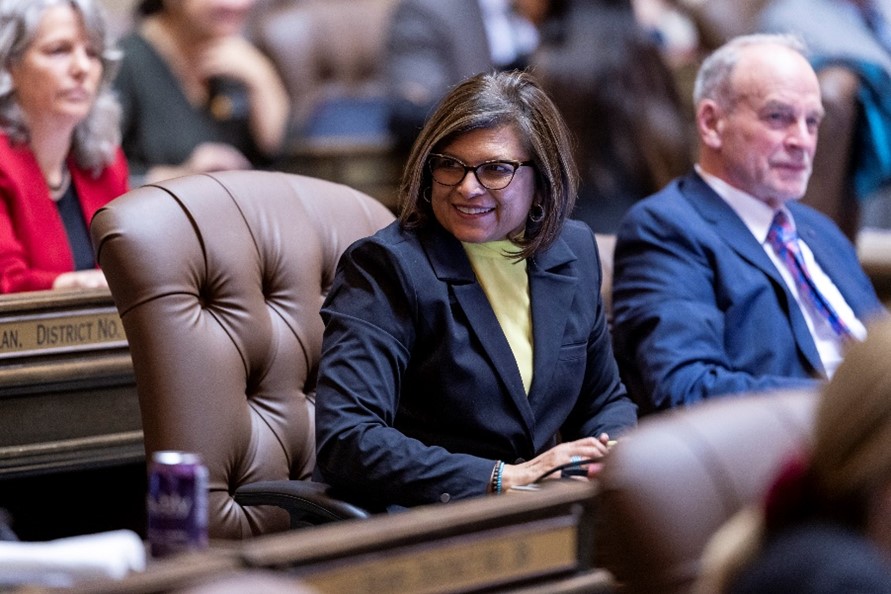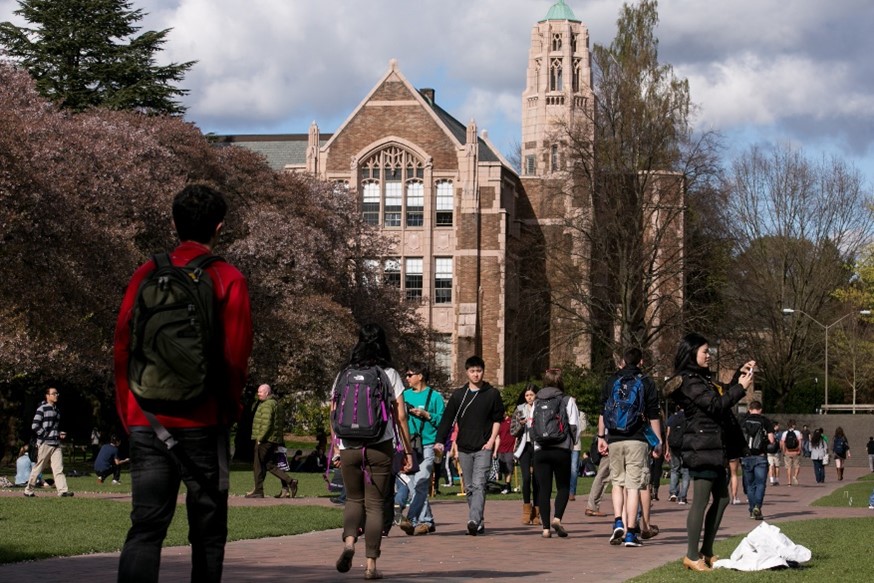Dear neighbors,
As Chair of the House Postsecondary Education & Workforce Development (PEW) Committee, I have the sincere honor of debating policy and working alongside fourteen of my colleagues from both sides of the aisle. We share a commitment to broad overall goals including, improving equitable access to post-secondary education, improving the health and safety of all students, and ensuring Washington can meet present and future workforce demands.
January 31 marked the last day that House policy committees could pass bills out of committee in the chamber they were introduced. In PEW, we received twenty-seven pieces of legislation, and voted onward twenty of those bills.
With only four and a half weeks remaining, the urgency to address critical issues affecting education and workforce opportunities is more important than ever. Below is a brief update on our work to achieve an equitable and accessible postsecondary future. I hope you’ll find it useful!

Financial Aid Access
Financial aid is one way to bridge the achievement gaps and disparities that hold so many Washingtonians back. That’s why we passed bills like HB 2171, HB 1338, and HB 2019, which expand access to post-secondary programs within correctional institutions and establish the Native American Apprentice Assistance Program. These policies help make quality education a reality for all, regardless of background or circumstance.
Student debt is another hurdle, weighing down individuals and hindering our economic potential. Bills like HB 1950, HB 2025, and HB 2214 expand access to financial aid, provide work study programs, and ensure people can access loan forgiveness programs. In addition, we also considered HB 2155 building a credential registry that helps students understand the credential they are receiving and how easily it can be transferred.
Student Health & Safety
Safe campuses are essential for learning and growth. The PEW committee prioritized measures like HB 2112, which provides fentanyl and opioid prevention education and increases access to overdose reversal medications. Additionally, HB 2242 prioritized empowering survivors of sexual assault and a culture of prevention. Creating safe spaces where everyone feels respected and supported is paramount to learning effectively.
Workforce Development

Workforce shortages threaten our state’s potential and overall economic sustainability for families. Bills like HB 1917, 1939, and 1946 streamline licensing and certification processes for healthcare and behavioral health professionals, addressing critical workforce shortages in those sectors and supporting military spouses and members to get licensed efficiently so they can support their families.
The future of work also demands agility and adaptability, and we must find ways to be proactive. HB 1176 (passed in 2023) provides an example that supports the growing clean energy and green economy. It mobilizes young adults and veterans in service-oriented roles to support sustainable practices and conservation and to be exposed to clean energy and climate-resilience based jobs.
At a time when we are worried about the impacts and workplace upheaval of AI (artificial intelligence), we have many people who still do not have technology devices, digital literacy, or even broadband access! So, in partnership with Rep. Gregerson, I was pleased to sponsor HB 2360, the Digital Empowerment & Workforce Inclusion Act to help equip vulnerable workers with in-demand technology and digital skills for the current and future economy.
The Big Picture

Everyone deserves a chance to fully contribute and participate in our economy and society. Postsecondary education offers pathways to fulfill our educational and workforce needs in all corners of our state. We have more work to do but I am excited to be part of building a future where everyone can thrive. I look forward to sharing more on the work we are doing to advance housing, affordability, community safety and K12 education in my next newsletter. Thank you for all your emails and letters, and for all you do.
In service,

State Representative Vandana Slatter
